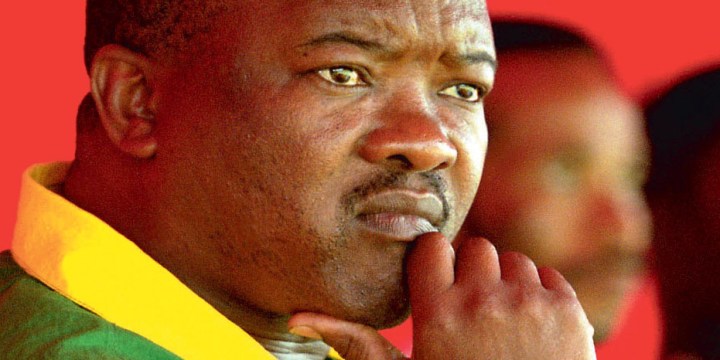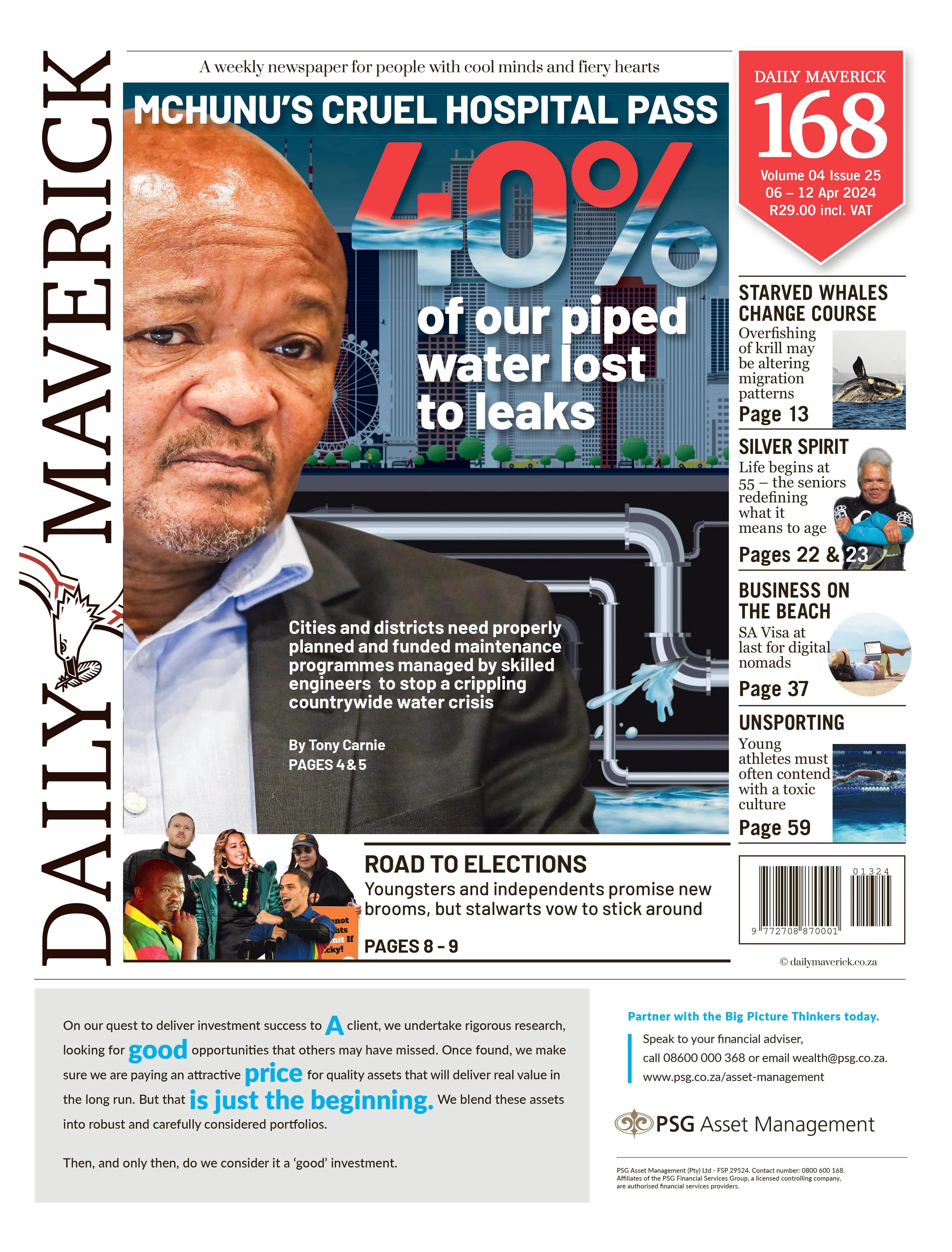ROAD TO 2024 ELECTIONS
UDM manifesto — end the coalition free-for-all and ban forced marriages

The UDM also singles out traditional leaders as deserving of special treatment and respect.
All about…
- General Bantu Holomisa is always an interesting politician, and the UDM manifesto is the work of a seasoned one;
- Holomisa says the imperative of economic policy is stability. (Quite right – Ed.);
- Because of his rural base there is a focus on the rights of traditional leaders, and his ideas for a land indaba are important given the stasis in South Africa’s thinking on land.
Climate change
- South Africa’s priority is to address backlogs and imbalances of the past; migration to green energy must be balanced against development goals;
- Wants to untangle Cabinet confusion – why have a minister of electricity and also a minister of mineral resources and energy?;
- Address sustainable harvesting and trade in hides, ivory and rhino horn.
Crime and corruption
- Special corruption courts;
- Name, shame and blacklist perpetrators of corruption in private and public sectors;
- Create a civil order system;
- Enhance communication across justice ministries, police, correctional services, defence and national intelligence;
- Focus on “destroying” crime syndicates by breaking up their power bases;
- Give adequate resources to neighbourhood watches;
- Get the military involved in disaster relief; become better equipped for counterinsurgency work and peacekeeping;
- Ban the practice of ukuthwala, or forced marriages.
Economy
- Don’t fund government operations through debt;
- Stop chopping and changing economic policy – it has “muddled” South Africa’s economic prospects. The UDM says shifts from the Reconstruction and Development Programme to the Growth, Employment and Redistribution framework, then the Accelerated and Shared Growth Initiative for South Africa (An accelerated growth path plan – Ed) and the National Development Plan 2030 have been confusing. (Phew, we agree – Ed.);
- Maintain stability and predictability;
- Use the Public Investment Corporation and Industrial Development Corporation to drive growth, not elite wealth creation and corruption;
- Enterprise- or entrepreneurship-led growth support by the state through local stock exchanges, community development banks and localised venture capital markets;
- Infrastructure-led growth model;
- Local government support for small traders and hawkers;
- Encourage partnerships between locals and migrants for skills transfer in salons and barber shops.
Education
- Reintroduce school inspectors; reopen vocational training colleges; reopen teachers’ and nursing training colleges;
- Support fee-free tertiary education.
Global policy
- Must be subservient to the national interest of South Africa;
- Be independent; retain the moral high ground in international conflict resolution;
- Advance African initiatives.
Governance
- Restore the powers of accounting officers so politicians do not usurp it;
- Reduce reliance on consultants;
- Review civil servants’ promotion and salary packages;
- Measure each department by services delivered and the differences made to somebody’s quality of life (rather than by strategy documents);
- Demand neatness and etiquette in civil service;
- Start a national campaign to support people living with albinism to end stigma and victimisation;
- Support and commit to a hybrid electoral system of proportional representation (PR) and a constituency-based system; PR system should include geographically defined areas.
Health
- Focus on healthcare infrastructure and the subpar state of clinics;
- Regulate traditional healing and healers;
- Focus on substance abuse.
Jobs
- A massive Marshall Plan for the economy through public employment and public works, focused on textiles and steel manufacturing.
Land
- A proposed economic indaba (focused on land) does not favour “free-for-all land grabs and evictions”;
- This indaba should determine who will be affected and how; what will impact food security and economic stability; options for rapid urbanisation; the implications of urban land sales to foreigners; how to speed up title deed transfers.
Migration
- Legal migrants advance enterprise development and growth; illegal migration does not;
- Reserve certain jobs and occupations for locals only – in markets and spaza shops, petty trading and hawking; taxi and car hire services with fleets of 25 vehicles or fewer; basic stationery production; pharmaceutical retail.
Power cuts
- A slow transition to renewable energy forms balanced against the needs of workers and South Africa’s development;
- End Eskom’s monopoly by selling 49% of its equity to private sector expertise in a public-private partnership model.
Traditional leaders
- Consider how to imbue tremendous respect and authority for traditional leaders;
- They have been belittled and undermined;
- Revisiting that “for millions of South Africans, traditional leaders are authority figures, undisputed leaders and decision-makers, and custodians of culture, traditions and values. They are the closest form of government that many of our people know.”
Transport
- Explore the feasibility of an intercity high-speed rail system.
Reality check
- It’s a clear and reasonable manifesto from a seasoned political leader;
- Holomisa acknowledges that the UDM is likely to be a coalition partner and sets out the basis for what makes good coalitions;
- He says coalition compacts should be public documents, and this form of government should be regulated and have measurable standards, rather than the “free-for-all” it is now.
What’s good
- The manifesto says: “Coalition government should be regulated so that the principle of serving the people is not suppressed by wanton political intimidation and playing the numbers game that typifies the present local government dispensation;
- For the first time, a political leader promises to ban ukuthwala;
- The focus on the rights of and support for people living with albinism is important. DM
Read more in Daily Maverick: 2024 elections
This story first appeared in our weekly Daily Maverick 168 newspaper, which is available countrywide for R29.



















 Become an Insider
Become an Insider
I’ve always found Bantu Holomisa to be a very sober politician, and I like what I read here. It’s balanced and I like the idea of a Marshall Plan for the economy. The social aspect of the UDM’s manifesto seems to be quite balanced as well. Like the sounds about property and land. Job reservation is an interesting concept. Lot’s of focus on reintroducing discipline in the civil service… also like the idea of semi-privatising Eskom. Will maybe have to reconsider my vote!
UDM and Bantu Holomisa’s pragmatic approach to economic stability and their comprehensive manifesto underscores his experience as a seasoned politician, offering clear and reasonable solutions to pressing issues such as crime, corruption, and economic development. His emphasis on regulation, accountability, and inclusive governance sets a promising tone for effective coalition partnerships and responsible governance.